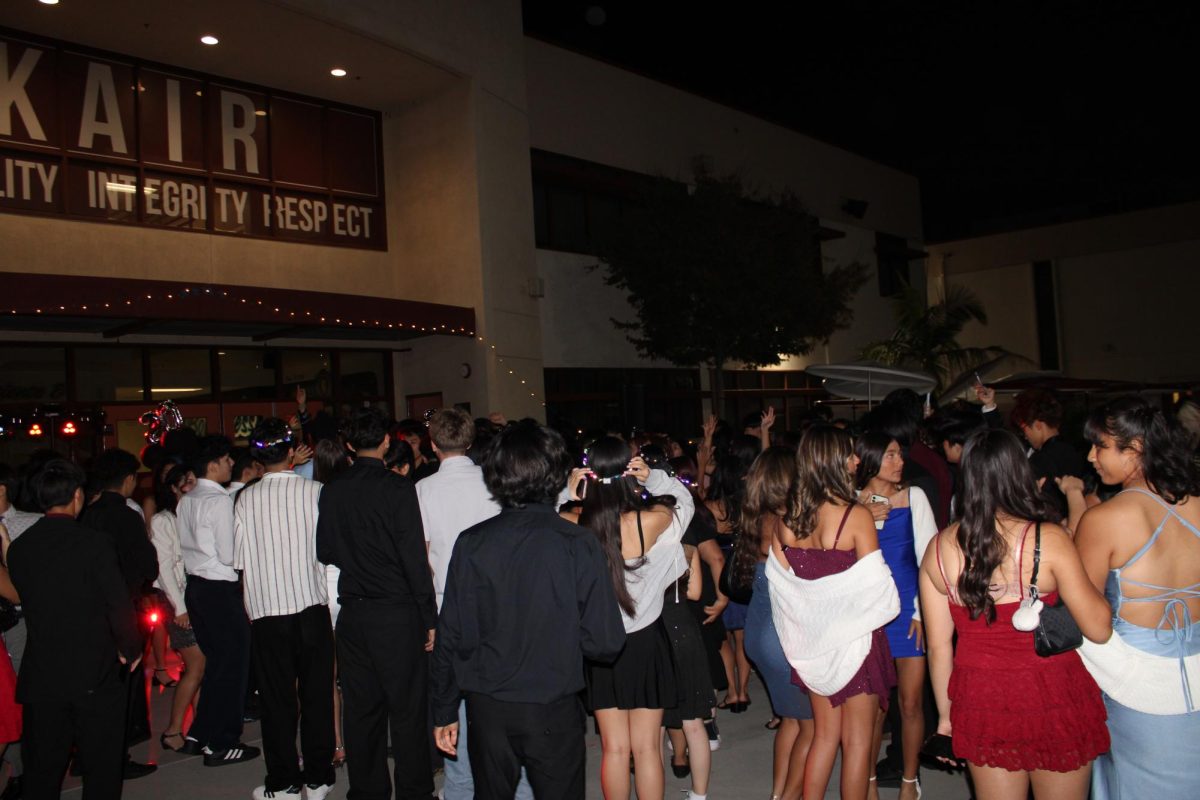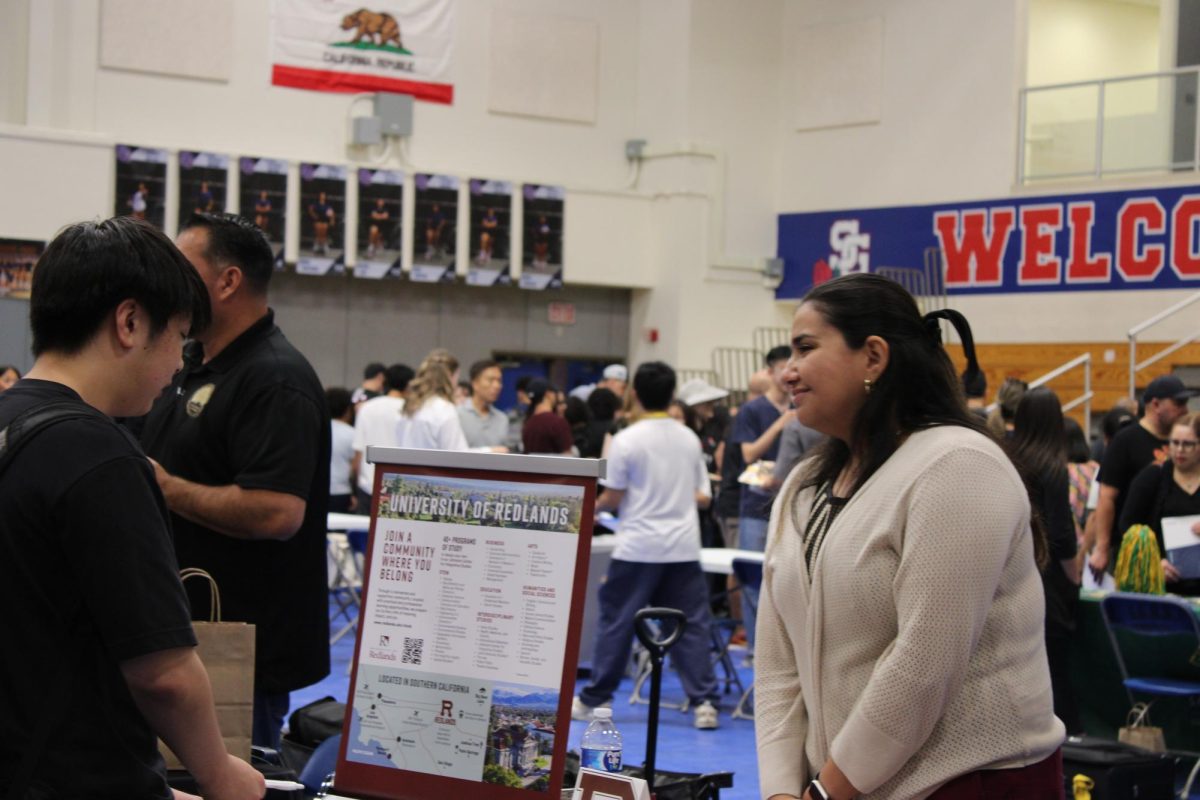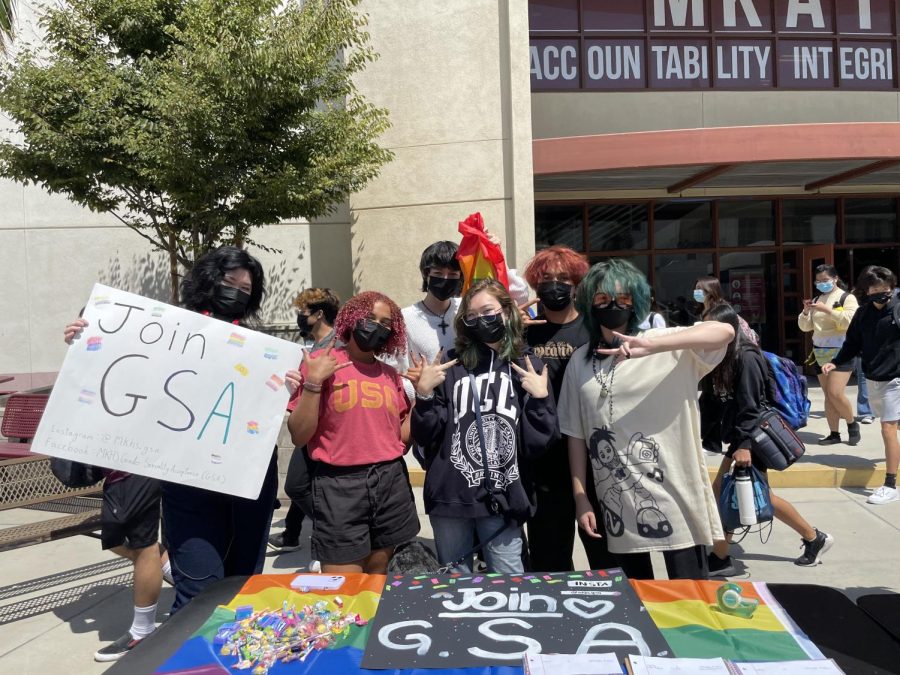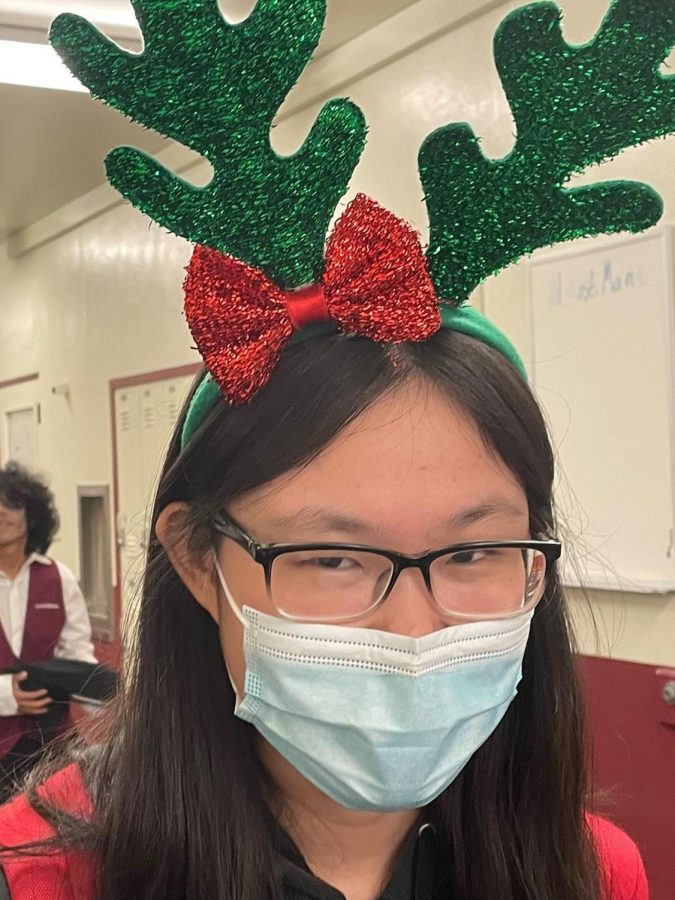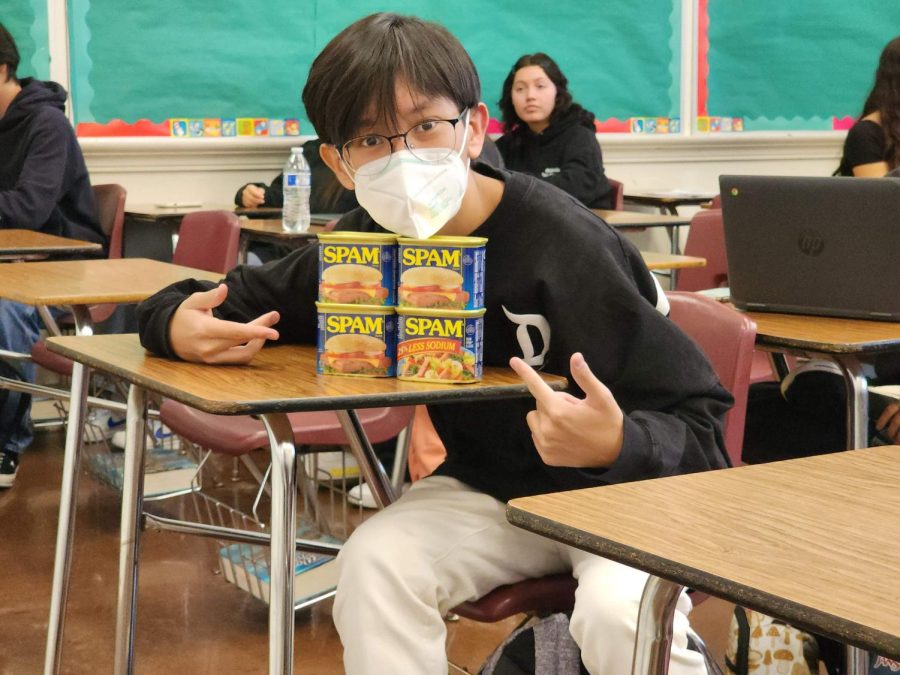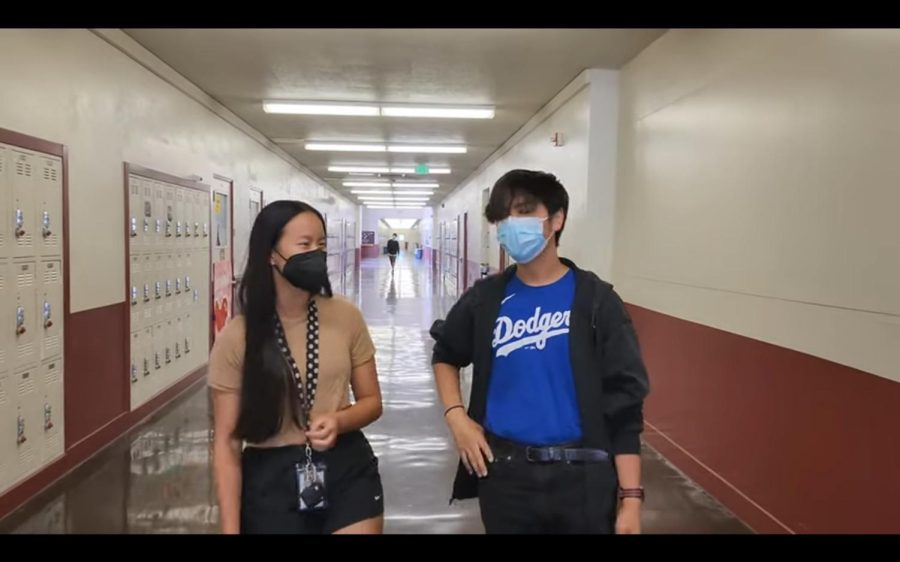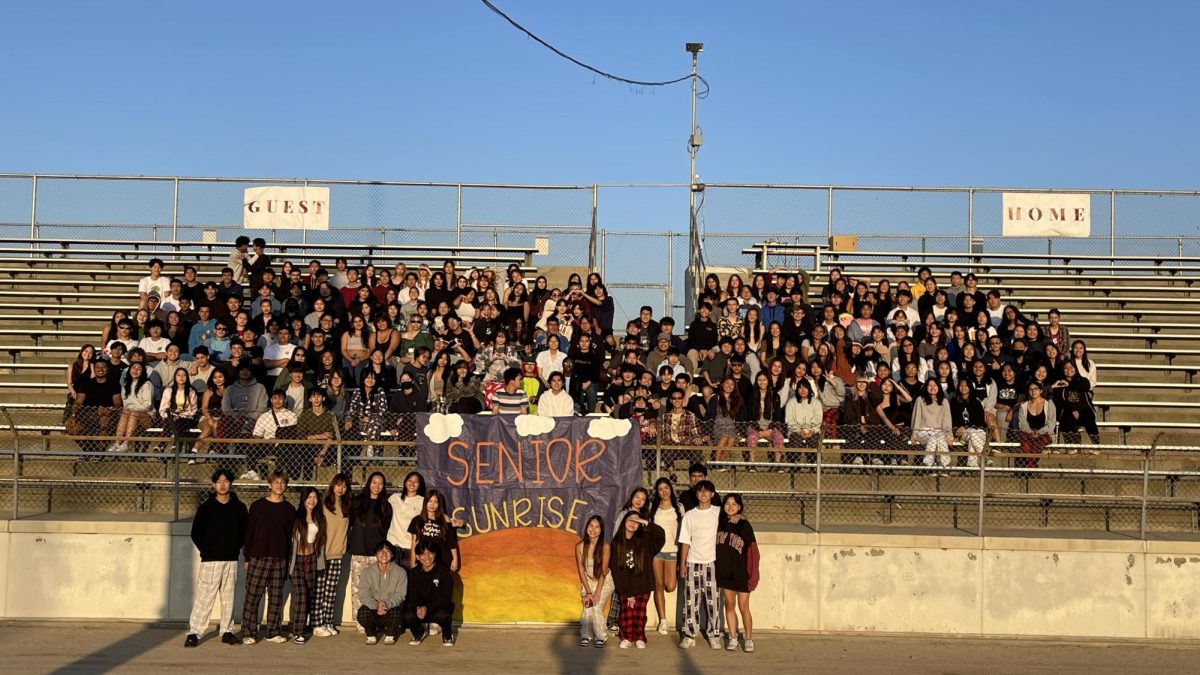As a part of their ongoing series, Early Warnings: America’s Youth Mental Health Crisis, the Public Brodcasting Service, better known as PBS, visited Alhambra High School and Mark Keppel High School to interview and get insight into the mental health of high school students and how this is impacted by their lack of sleep.
William Brangham, the journalist who covered the story, spoke to Keiko Rakin, a 15-year-old sophomore at Alhambra, and Gabby Wong, a 16-year-old junior at Keppel. The documentary titled, “How Teenagers’ Lack of Sleep is Taking a Toll on Their Mental Health,” covered the pressures of high school students to do and excel at everything, for their own happiness but mostly just to have a fighting chance of getting into college and having a successful future.
The documentary starts off with Rakin talking about her intense schedule. She has homework every night, about two tests per week. She’s in sports, as well as five clubs, all of which she has leadership positions in. Rakin comments, “And I get overwhelmed. You know, I can cry. I have a hard time breathing. And it’s just me thinking, I have so much to do and I just don’t have the time to do it.”
Brangham continues to comment on how the academic pressure, the college pressure, the sense that she’s simply ‘not doing enough’ has turned Rakin into a night owl. Rakin mentions that she finally goes to sleep at 1:00 am and sleeps anywhere from 5 to 6 hours, leaving her yawning and wanting to fall asleep in class. And Rakin isn’t alone, according to the Centers for Disease Control and Prevention (CDC), “More than 70 percent of American teenagers aren’t getting enough sleep.” Lisa Damour, clinical psychologist and author of “The Emotional Lives of Teenagers”, claims that teenagers’ sleep is less and worse than it has ever been before. Damour continues to discuss how the lack of sleep leads to mental, physical, and emotional issues that follow these kids throughout their lives.
Students start school early in the morning and are put through hours of mental strain extending way past when the clock lets them out of school. Before the pandemic started, the average high school start time across the nation was 8:00 a.m. However, last year California became the first state to mandate that classes begin no earlier than 8:30. But for some students like Wong, this doesn’t change much. Wong’s school day usually starts at 7:30 a.m. with a grueling schedule of school and extracurriculars such as speech and debate, a schedule that keeps her up well past midnight.
Wong’s sleep schedule fluctuates from about 3 to 7 hours of sleep on the weekdays but up to 12 on the weekends. A trend her parents have worried about, even going as far as to cut her internet at 12:00 a.m. out of concern that she isn’t sleeping enough. But Wong says this leaves her anxious to finish all her assignments by the time the clock hits midnight. Wong discloses having suffered with mental issues since she was 11. She stares at the ceiling every night wondering about assignments she hasn’t finished, extracurricular activities she has coming up. She comments on the situation by saying, “And you’re thinking, I am not having an easy time with this. Why am I the only one struggling with this? But everybody is struggling with it.”
According to every student that was spoken to, this wasn’t a result of parental pressure, but simply an everyday reality of being a teenager today.
Another connection that was made was to technology. Almost every teen has some sort of access to a piece of technology, whether it is a phone or a laptop, and many have access to social media. Many teenagers have hard times pulling away from social media, leading to them staying up at all times of night and not getting the amount of sleep they need.
Adriana Galvan, a neuroscientist, along with Andrew Fuligni, a developmental psychologist is studying the links between sleep and teenage mental health. Galvan admits that it is a chicken and egg situation, meaning it is hard to determine which comes first, the chicken presumedly in this case the poor sleep, or the egg, presumably the mental health problems.
According to Galvan either could have caused the other but they are related, such as in anxiety and depression, two common mental health issues associated with poor sleep. All of this at a time according to Galvan and Fuligni when, “teenagers experience a natural shift in their circadian rhythm that begins to push them to stay up later. It’s not their fault. It’s not their choice. It’s what the biology is telling them to do. So they have to go to bed later. And then we’re actually many times asking them to go to school earlier and actually loading on the academic demands in the evening.” The best thing parents can do according to the two are to come to a routine with their children to help them to get more sleep going forward.
Wong is on board with this idea, committing to trying to get more sleep in the future. Wong also co-founded a mental health non-profit that aims to reach even younger students in San Gabriel Valley because of her and other kids her age experiences as kids with mental health not being taken seriously or validated by adults because of their adolescence.
Rakin also hopes that Keppel will create an anonymous tip line so students can seek help from peers about their mental health challenges so that they know that they are not alone, and others have felt the same. If you want to see more of the documentary, you can find it above or on the PBS NewsHour Youtube channel.



